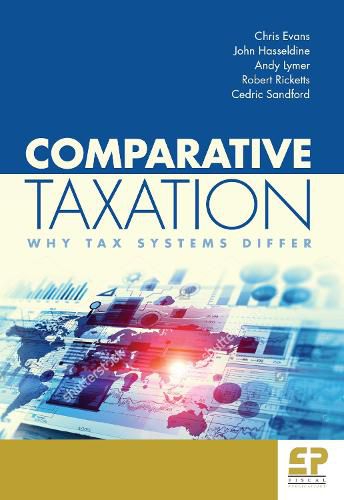Readings Newsletter
Become a Readings Member to make your shopping experience even easier.
Sign in or sign up for free!
You’re not far away from qualifying for FREE standard shipping within Australia
You’ve qualified for FREE standard shipping within Australia
The cart is loading…






This title is printed to order. This book may have been self-published. If so, we cannot guarantee the quality of the content. In the main most books will have gone through the editing process however some may not. We therefore suggest that you be aware of this before ordering this book. If in doubt check either the author or publisher’s details as we are unable to accept any returns unless they are faulty. Please contact us if you have any questions.
This book explores a number of critical issues related to tax systems around the world. Drawing upon a wealth of literature, it compares and contrasts modern tax systems in developed and developing countries, identifying factors that suggest they are converging and others that continue to distinguish them. It addresses the taxation of incomes (personal and corporate), wealth and consumption at the local, national, supranational and international levels; considers the use of environmental taxes; provides an analysis of modern trends in tax administration including issues of tax complexity and of tax compliance; and addresses the process and outcomes of tax reform.
Readers will include anyone interested in how tax systems are formed, how they operate in practice, and how they are reformed.
An ideal text for academic study at the intermediate or advanced levels.
This text explores and answers questions including:
$9.00 standard shipping within Australia
FREE standard shipping within Australia for orders over $100.00
Express & International shipping calculated at checkout
This title is printed to order. This book may have been self-published. If so, we cannot guarantee the quality of the content. In the main most books will have gone through the editing process however some may not. We therefore suggest that you be aware of this before ordering this book. If in doubt check either the author or publisher’s details as we are unable to accept any returns unless they are faulty. Please contact us if you have any questions.
This book explores a number of critical issues related to tax systems around the world. Drawing upon a wealth of literature, it compares and contrasts modern tax systems in developed and developing countries, identifying factors that suggest they are converging and others that continue to distinguish them. It addresses the taxation of incomes (personal and corporate), wealth and consumption at the local, national, supranational and international levels; considers the use of environmental taxes; provides an analysis of modern trends in tax administration including issues of tax complexity and of tax compliance; and addresses the process and outcomes of tax reform.
Readers will include anyone interested in how tax systems are formed, how they operate in practice, and how they are reformed.
An ideal text for academic study at the intermediate or advanced levels.
This text explores and answers questions including: